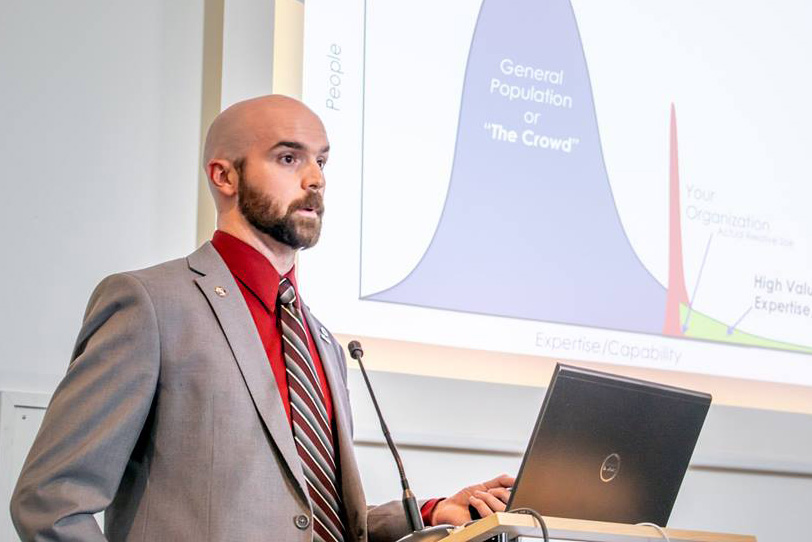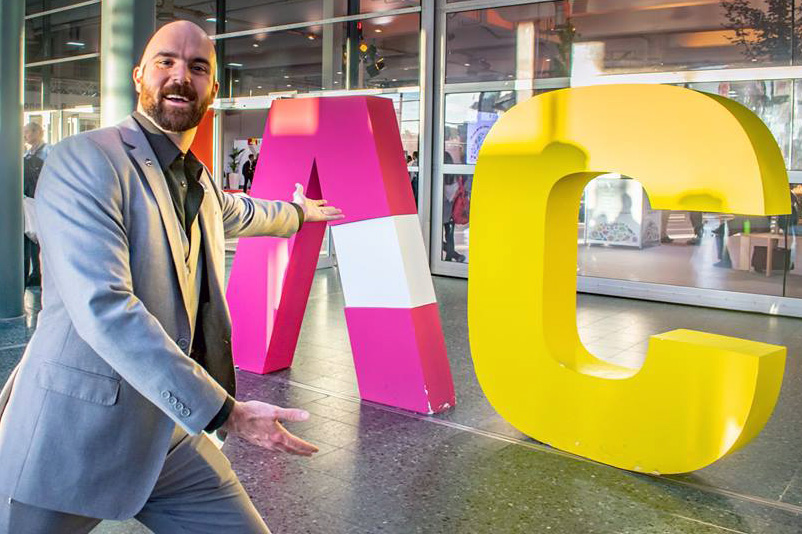Alumnus receives Future Space Leaders Foundation grant

A Purdue alumnus was one of seven individuals to receive a Future Space Leaders Foundation grant, a yearlong career development opportunity that allowed him to attend the International Astronautical Congress and Space Generation Congress, present a paper at the IAC, and participate in several workshops in October in Germany and also will offer additional opportunities to attend leading industry events.
Jeffrey Stuart (BSAAE ’08, MSAAE ’11, PhDAAE ’14) is a technologist in the Mission Design and Navigation Section of NASA’s Jet Propulsion Laboratory. Stuart’s diverse background and experience likely helped land him the grant from a foundation that wants to stimulate professional growth and foster cooperation and interaction among current leaders in the space field with young professionals.
Stuart not only works on missions for JPL but also enjoys opportunities to pursue research and development tasks infusing cross-disciplinary technologies, such as virtual reality with traditional mission design to grow the capabilities at the institution. He’s also the president of the New Researchers Support Group, an informal grassroots network that facilitates opportunities for colleagues to learn about how JPL and NASA work and how to get research and development tasks supported, funded and, ultimately, infused into a mission or into operations.
Stuart also has been a long-time mentor of Purdue FIRST programs, encouraging high school students to pursue STEM careers. He also was involved in Purdue Space Day while in West Lafayette.
“Going beyond the typical engineering work is what they really look for,” Stuart says of Future Space Leaders Foundation. “There’s a huge component, especially when it comes to the Space Generation Congress or the International Programme / Project Managers workshop, where they really try to focus on things beyond just the pure technology or the pure engineering or the pure science. They really do try to bring it all together with attention to policy as well, and what the benefits of space endeavors mean for the rest of the world. … That encourages them to look for people who are willing to stretch themselves in that regard.”

While at SGC, Stuart participated in a workshop that split attendees into groups to explore a variety of topics. Stuart’s topic related to supporting commercial companies that may want to travel into deep space, as NASA develops its own deep-space infrastructure, and how to help commercial companies do the same.
“These are topics I certainly don’t think about much in my day job except in idle daydreams, whereas this was concrete. You’re actually talking to people who may be able to advance those ideas,” Stuart says of the session.
Stuart says his biggest takeaways from the events in Germany were how much the space industry is looking at his and younger generations to be critical problem solvers and how broad the space industry is getting in terms of commercial companies and other countries hoping to create and expand their own space agencies.
JPL is in a unique position to be able to impart knowledge in its areas of expertise from deep-space robotic exploration to supporting human space-travel to Earth-focused scientific investigations, while also learning and applying lessons gained from collaborations with new players in the industry, Stuart says.
“There are a lot of commercial activities, for example space-based manufacturing and affordable tourism, that were only dreams 10 years ago, and they’re actually starting to become reality,” Stuart says. “Just how diverse space is getting is crucial for its sustainable growth, but there’s always going to be some challenging periods as we figure out how these new parts fit together for future space endeavors.”
